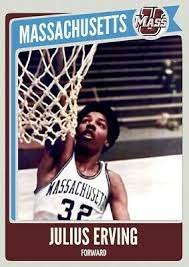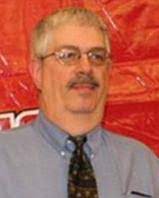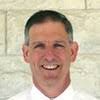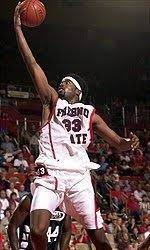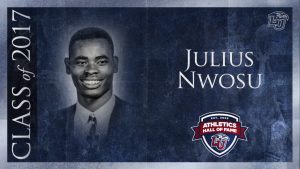Most college basketball fans know that Pete Maravich is the leading-scorer in D-1 history, but if you asked them who was #2 you would probably receive a lot of wrong guesses. The correct answer is Freeman Williams, who led the nation in scoring for 2 straight years in 1977/1978 and graduated from Portland State with 3249 career PTS. He was drafted 8th overall by the Celtics in 1978 and became 1 of the most efficient scorers in the league, finishing his NBA career by averaging 14.7 PPG despite only playing 20.5 minutes/game. HoopsHD’s Jon Teitel got to chat with Freeman about scoring 81 PTS in a game and being part of the film “White Men Can’t Jump”. Today is Freeman’s 65th birthday so let us be the 1st to wish him a happy 1!
You were a member of Team USA at the 1977 World University Games in Bulgaria (along with Larry Bird/Darrell Griffith/Sidney Moncrief): what did it mean to you to win a gold medal, and was that that greatest team you have ever been a part of? It was definitely the best team that I ever played on: most of them went to big-time colleges and ended up having successful NBA careers. Our coach was Denny Crum, who was also great. Winning a gold medal was 1 of the greatest accomplishments of my life.
In December 1977 as a senior at Portland State you made 17 FG (which remains a Rupp Arena record) and scored 39 PTS in a loss at Kentucky: how were you able to play so well against a great team in their legendary gym? Even though I was the nation’s leading scorer, a lot of people said that it was only because I played against weak competition. When we got the chance to play against major schools I tried to play my best.
In February 1978 you scored 81 PTS (still the 3rd highest total in NCAA history) on 37-56 FG (including 54 PTS in the 1st half) in a win over Rocky Mountain College: how on earth were you able to take 56 shots, and at halftime were you thinking that you could make it to 100 PTS? I did not know how many points I had at halftime because nobody told me. However, I knew that it was a special night because everything I shot went in: left-handed, right-handed, you name it!
In 1977 and 1978 you led D-1 in scoring, and you are still the #2 scorer in D-1 history with 3249 PTS (trailing only Pete Maravich): what was your secret for being a great scorer, and do you consider yourself to be 1 of the best players in NCAA history? I do consider myself to be 1 of the best. I had always been a scorer and was expected to put up a lot of shots. If I did not score then we would lose so when the ball came to me I would shoot it. To be #2 to the great Pete Maravich is exciting.
You were also a 2-time All-American: what did it mean to you to win such outstanding honors? Most of the other All-American players like David Greenwood (UCLA)/Jack Givens (Kentucky) came from big schools and all of them got drafted as well.
In the summer of 1978 you were drafted 8th overall by Boston (2 spots behind Larry Bird) and then traded to San Diego a couple of months later: what did it mean to you to get drafted, and what did it mean to you to get traded? I will never forget getting the call from Celtics owner Red Auerbach after they drafted me. If I had stayed in Boston then I would probably have a couple of championship rings but I have no regrets: I was just happy to be in the NBA.
In January 1980 you scored a career-high 51 PTS vs. Phoenix: was it just 1 of those scenarios where every shot you put up seemed to go in because you were “in the zone”? Phoenix had a good team with guys like Paul Westphal/Truck Robinson but it was hard to stop me when I was making so many shots.
In 1981 you scored 19.3 PPG in only 24.1 MPG, becoming the only player to ever score 18+ PPG in less than 25 MPG and the only player to ever lead his team in scoring while coming off the bench: why did Coach Paul Silas decide to have you come off the bench, and how were you able to be so effective? After we traded Lloyd Free to Golden State, Coach Silas named Phil Smith/Brian Taylor as our starting guards because they had more experience than I did. However, I was always in the game during the 4th quarter and got to take a lot of shots down the stretch.
You finished in the top-10 in 3PM each year from 1980-1982 and were #2 in 3P% in 1981: what was your secret to 3-PT shooting? I always used to shoot from long-range in college even though they did not have a 3-PT line. When I got to the NBA it was nothing really new for me.
You played fictional playground legend Duck Johnson in the film “White Men Can’t Jump”: how did you get the part, and how did you like being an actor? I was lying in bed 1 day when the phone rang: it was Marques Johnson calling me to say that he was auditioning for a movie and that I should try out as well. I auditioned for director Ron Shelton and he ended up hiring me. It was great to play against Wesley Snipes/Woody Harrelson: they were very nice guys.


